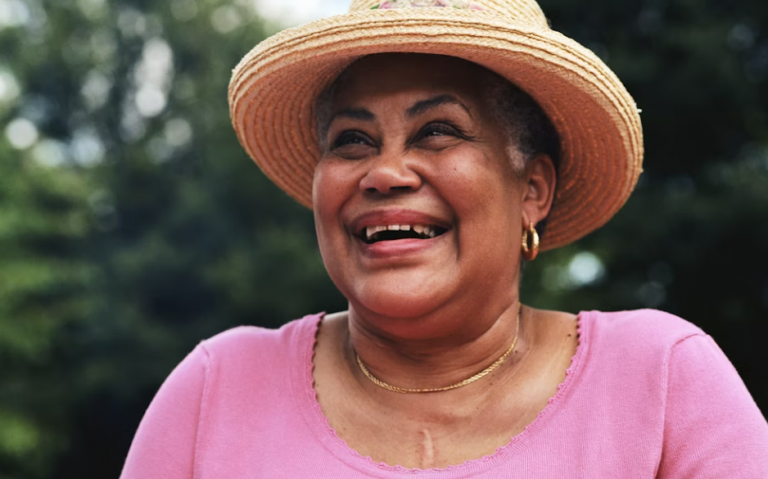
Disclaimer: If you are pregnant, nursing, taking any medication, or under medical care, consult a physician or healthcare professional before use. This product should be used only as directed on the label. Consult a physician before use if you have a serious medical condition or are taking prescription medications. Consult a physician before using this or any supplemental dietary product. All trademarks and copyrights are the property of their respective owners and are not affiliated with or endorsed by this product. These statements have not been evaluated by the FDA. This product is not intended to diagnose, treat, cure, or prevent any disease. Individual results will vary. By using this site, you agree to be bound by the Privacy Policy and all Terms and Conditions posted on this site. THIS IS AN ADVERTISING AND NOT AN ACTUAL NEWS ARTICLE, BLOG OR CONSUMER PROTECTION UPDATE. MARKETING DISCLOSURE: This website is a marketplace. So, you should know that the owner has a monetary connection with the products and services advertised on the site. The owner gets paid whenever a qualified lead is referred to them, but that’s about it. ADVERTISING DISCLOSURE: This website and the products and services mentioned on it are advertising platforms. This site is an advertisement and not a news publication. Any photographs of people used on this site are of models. The owner of this site and the products and services mentioned on this site only provides services to enable consumers to obtain and compare them.
Grief is a painful journey we will all face at some point in our lives. Grief can involve physical pain as well as experiencing difficult and unexpected emotions and behavioral changes.
While there is no right or wrong way to grieve, there are ways to make it a little easier. This article will discuss the basics of grief as well as provide tips for coping with grief and loss.

What Is Grief?
Grief is a natural response to a perceived loss. This can be due to the death of family members, friends, or pets. Grief can also occur for other reasons as well such as divorce, breakups, moving, financial instability, and other major life events that disrupt your sense of normalcy. It is also possible to grieve one’s own mortality, such as patients facing terminal illness.
Stages Of Grief
The five stages of grief were developed by psychiatrist Elisabeth Kübler-Ross. These stages may not occur in order and can also be experienced simultaneously:
- Denial: Denial is the first stage of grief. When experiencing denial, one may have trouble believing their loss. Denial is a defense mechanism and a way one may attempt to avoid emotional pain.
- Anger: Those in the second stage of grief will often feel angry. Someone during this stage may feel emotionally unstable as they begin to feel the weight of their loss.
- Bargaining: Bargaining is the third stage of grief and is often exemplified by turning to a higher power that one may believe can influence the situation and take the suffering away.
- Depression: The fourth stage of grief is depression and involves typical symptoms associated with depression such as intense sadness, exhaustion, etc.
- Acceptance: Finally, the last stage of grief is thought to be acceptance. This does not mean the hurt of what someone has lost is gone; it simply means that they have reached a point of acceptance and peace with what they no longer have.
Symptoms Of Grief
There are various symptoms associated with grieving. While grief is often referred to as a strictly emotional process, grieving actually has physical and behavioral symptoms as well.
Physical Symptoms
Physical grief symptoms can include:
- Fatigue
- Headaches
- Nausea
- Weight gain
- Aches
- Changes in sleep (either sleeping too much or too little)
Emotional Symptoms
Emotional grief symptoms can include:
- Profound sadness
- Relief
- Guilt
- Apathy
- Anger
- Deep loneliness
- Intense longing
- Regret
Note: Sometimes, grieving people may even feel numb or nothing at all. All feelings are valid and normal during the grief experience.
Behavioral Symptoms
Behavioral grief symptoms can include:
- Confusion
- Difficulty in making decisions
- Lost hope or direction
- A lack of focus
- Memory issues
- Questioning religious or spiritual beliefs

Types Of Grief
There are various forms of grief. Learn more about some of these types below.
Anticipatory Grief
Anticipatory grief develops due to impending loss. Anticipatory grief can be preparing for the death of a loved one or even preparing for the end of one’s own life. This type of grief can also include situations not related to death. For example, an upcoming divorce or watching a friend or family member progress through Alzheimer’s disease.
Ambiguous Loss
Ambiguous loss refers to grief that is accompanied by a lack of closure. Examples of ambiguous loss can include divorce, estrangement, natural disasters, incarceration, war, etc.
Complicated Grief
Complicated grief occurs when someone continues to experience symptoms of intense grief for a year or more after a loss, impacting an estimated seven percent of adults who experience grief. Complicated grief is marked by symptoms such as:
- An extreme preoccupation with the loss
- Intense emotional suffering
- Grief denial
- Purposelessness
- Insomnia
- Suicidal thoughts
Note: If you are having thoughts of suicide, contact the National Suicide and Crisis Lifeline by dialing 988. If you or someone else is in immediate danger, call 911.
Complicated grief is linked to a number of physical health and mental health complications including:
- Depression
- Anxiety
- Malnutrition
- PTSD
- Heart disease
- Hypertension
- Substance use disorder
- Alcohol use disorder
Someone experiencing complicated grief can find relief through cognitive behavioral therapy (CBT), taking antidepressants, or joining support groups.
Disenfranchised Grief
Disenfranchised grief is when someone’s grief is pushed aside, stigmatized, or belittled. For example, someone going through grief due to the loss of a pet may not be met with the same sympathy as others grieving losses deemed more legitimate. Other forms of disenfranchised grief include having a miscarriage, loss of a casual relationship, loss of a loved one in prison, etc.

Coping With The Grieving Process: 6 Tips
Grief is necessary but difficult. That said, there are strategies that can make grieving easier to navigate including spending time with trusted people, self-care, grief counseling, and more.
1. Talk with trusted people
You don’t have to go through grief all by yourself. In fact, you shouldn’t. Reaching out to trusted loved ones such as other family members and friends can make the grief easier to carry. You are not a burden for needing support.
2. Practice self-care
Self-care is always important, but it is especially imperative while healing from loss. Taking care of yourself won’t necessarily take the pain away but it will help you feel better and make you more equipped to deal with your loss.
Non-negotiables of self-care during grief include:
- Getting quality sleep
- Resting as needed
- Exercise regularly
- Eat healthy and nutritious foods
Incorporating other self-care such as yoga, meditation, and other relaxation techniques is also incredibly beneficial for you during this difficult period.
3. Attend grief counseling or grief therapy
Seeing a grief counselor or another mental health professional such as a therapist can be helpful with moving through the grieving process. Grief counseling is a type of therapy that helps you move through the process of grieving.
In addition to discussing your loss, a grief counselor may turn to techniques such as cognitive behavioral therapy, art therapy, and more to help you move through difficult emotions and return to a sense of normalcy in your life.
4. Stick to a routine
Creating a solid routine can help you return to a sense of normalcy as you learn to accept and move on from your loss. Some ways to implement routine and consistency in your life include: going to bed and rising at the same time every day, scheduling your meals for the same times daily, showering as soon as you get up, etc.
5. Join a bereavement support group
Bereavement support groups can help make processing grief less lonely and give you a sense of community. There are various benefits to joining a bereavement support group including enhanced emotional connection, information sharing, and a decrease in psychological distress.
Note: Support groups are available online and in person. To find a local support group, visit this resource for a step-by-step guide.
6. Feel your feelings.
Remember, grief is a natural emotional response to loss. And while grief may involve intense emotions, this doesn’t mean you need to tuck messy emotions away. In fact, you shouldn’t. Feeling your feelings is the only way to move past them.

Remember: There Is No Right Or Wrong Way To Grieve
When such a significant loss occurs, or when that loss remains unresolved, be patient with yourself. While grief can be a frightening emotion and can feel overwhelming, remember that there are no right or wrong emotions to experience while grieving. As well, not everyone will grieve in the same way.
The grieving process takes time and is never easy. Just know that you are not alone and while life may never be the same, it will get better.








Leave a Comment